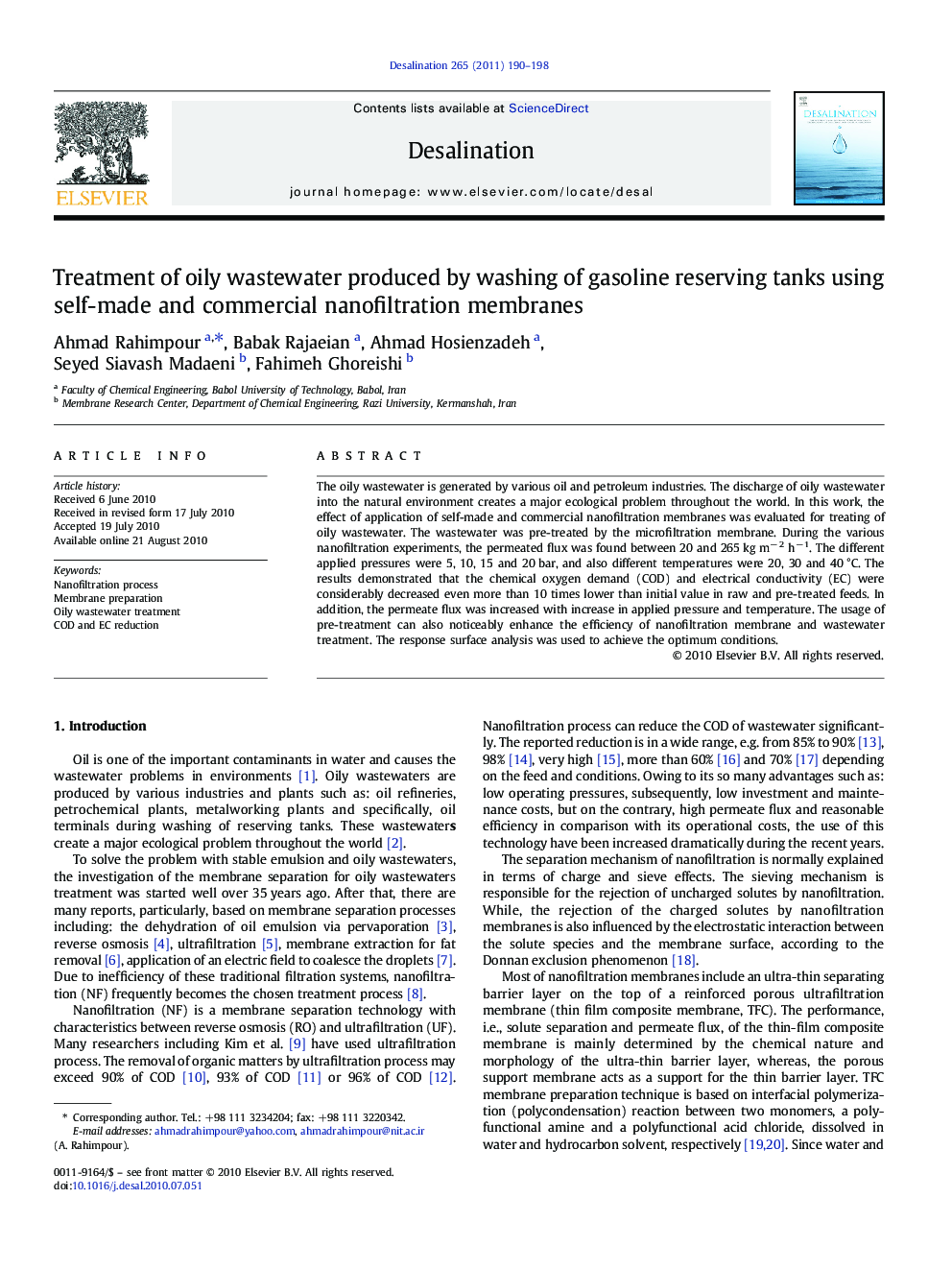| Article ID | Journal | Published Year | Pages | File Type |
|---|---|---|---|---|
| 625381 | Desalination | 2011 | 9 Pages |
The oily wastewater is generated by various oil and petroleum industries. The discharge of oily wastewater into the natural environment creates a major ecological problem throughout the world. In this work, the effect of application of self-made and commercial nanofiltration membranes was evaluated for treating of oily wastewater. The wastewater was pre-treated by the microfiltration membrane. During the various nanofiltration experiments, the permeated flux was found between 20 and 265 kg m− 2 h− 1. The different applied pressures were 5, 10, 15 and 20 bar, and also different temperatures were 20, 30 and 40 °C. The results demonstrated that the chemical oxygen demand (COD) and electrical conductivity (EC) were considerably decreased even more than 10 times lower than initial value in raw and pre-treated feeds. In addition, the permeate flux was increased with increase in applied pressure and temperature. The usage of pre-treatment can also noticeably enhance the efficiency of nanofiltration membrane and wastewater treatment. The response surface analysis was used to achieve the optimum conditions.
Research Highlights► Treatment of oily wastewater by nanofiltration membranes. ► Preparation of thin film composite nanofiltration membranes and their application to wastewater treatment in comparison with two commercial nanofiltration membranes. ► Investigation of test condition effects on the performance of nanofiltration membranes. ► Optimization of filtration conditions during wastewater treatment.
